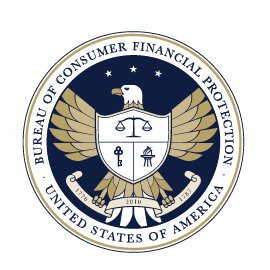 The U.S. District Court for the Northern District of Ohio issued its highly anticipated ruling on July 25 in a CFPB enforcement action against an Ohio debt collection law firm, concluding that the firm’s attorneys were “meaningfully involved” in the collections process and entering judgment in favor of the law firm.
The U.S. District Court for the Northern District of Ohio issued its highly anticipated ruling on July 25 in a CFPB enforcement action against an Ohio debt collection law firm, concluding that the firm’s attorneys were “meaningfully involved” in the collections process and entering judgment in favor of the law firm.
The decision followed an advisory jury’s verdict, which found the law firm’s pre-suit collection letters contained “false, deceptive, or misleading representations or means in connection with the collection of a debt” while rejecting a claim that the firm’s attorneys were not meaningfully involved in the debt collection process in violation of the FDCPA.
A copy of the Court’s Memorandum Order and Opinion in Consumer Financial Protection Bureau v. Weltman, Weinberg & Reis Co., L.P.A. is available here.
Law Firm’s Letters Were Truthful
In April 2017, the CFPB commenced an enforcement action against the law firm, alleging that collection letters being sent out by the firm misled consumer recipients of the letters by suggesting that they were from an attorney although no attorney with the firm had been “meaningfully involved” in sending the letter.
While the verdict returned by the jury on May 4 found that the initial demand letter at issue being sent by the firm was reflective of “false, deceptive, or misleading representations,” the verdict stopped short of finding that the firm’s attorneys were not “meaningfully involved” in the debt collection process being challenged. The jury’s verdict was only advisory and could have been accepted or rejected by the Presiding Judge, (see Rule 39(c)(1)).
The Court adopted the jury’s verdict that the CFPB had not proved by a preponderance of the evidence that the firm was not “meaningfully involved” in the debt collection process which resulted in the sending of the letters at issue, finding that the verdict was supported by the weight of the evidence. However, the Court rejected the jury’s finding that the letters in issue were “false and misleading,” thus correcting what had appeared to be a somewhat inconsistent verdict from the jury and which had confusingly suggested that the letters in issue were misleading but not for the reason as alleged by the CFPB — lack of meaningful involvement.
Law Firm Was “Meaningfully Involved”
The Court first identified that the CFPB was tasked with proving by a preponderance of the evidence that 1) the least sophisticated consumer would believe the firm was acting as an attorney in the debt collection process; 2) attorneys with the firm were not meaningfully involved with the debt collection process; and 3) the misrepresentation to this effect was material.
In this regard, the Court pointed out that while “[t]here is no specific test for what constitutes ‘meaningfully involved,’” case law reflects sufficient involvement includes if “one reviews the file of the individual consumer to whom the letter was sent and/or exercises some professional judgment as to the delinquency and validity of any individual debt” but that such are not “set requirement[s] for meaningful involvement.” Instead, the Court said, “[meaningful involvement] is a question that must be determined based on the individual facts and totality of the circumstances in each case.”
Noting that “a demand letter indicating that it comes ‘from an attorney’ can be found to be deceptive, even if literally true, if the letter is not the product of an attorney’s professional judgment, or if the attorney was not sufficiently involved in the collection of the debt or the drafting of the letter,” the Court began its findings of fact and conclusions of law by articulating the physical characteristics of the “attorney approved” letter template in issue.
The Court identified that the letter was printed on law firm letterhead, stated “ATTORNEYS AT LAW” and was signed by the firm’s name. As such, the Court concluded that such a letter, which “accurately describe[d] the identity and legal description of the entity sending the letter,” “cannot be fairly described as false or misleading simply for correctly identifying [the firm] as a law firm, and as the signatory.” Significantly, the Court also identified that the letter accurately conveyed that the firm had, in fact, been retained to collect the debt but that it made no representation that any attorney had specifically considered the circumstances of any individual account, threatened no legal action and was not signed by any individual attorney.
However, the Court found that nevertheless “the demand letters can be interpreted to imply that an attorney is ‘meaningfully involved’ in the debt collection process.” The Court further found that, by its own admissions, the firm is not practicing law when the letters in issue are sent, that no attorney with the firm has reviewed the specifics of a particular account before an initial letter goes out and no attorney has formed a “professional judgment” as to the validity of any particular debt at issue or the appropriateness of the letter being sent in light of any personal circumstances of the debt.
Attorney Involvements in Collection Process Indicative of “Meaningful Involvement”
Against this backdrop, the Court assessed the involvement the firm’s attorneys have in the collections process at issue, discussing in great detail the role the firm’s attorneys play, including its attorneys’ involvement with developing relevant policies and procedures for collections, overseeing compliance, creating the scrub processes employed prior to collections commencing and in-depth interaction with prospective clients and their account pools prior to placement and collections.
The Court also highlighted the firm’s role in collecting debts for the Ohio Office of Attorney General during Richard Cordray’s tenure there and operating at that time consistent with its current operations under fire by the CFPB, scathingly noting that “[d]espite requiring similar indications and disclosures of attorney involvement in the debt collection letters used on behalf of the State of Ohio, Richard Cordray, when he became head of the CFPB, authorized this lawsuit against [the firm].”
Discounting the CFPB’s survey evidence and expert testimony as failing to “present credible evidence from which the fact finder could infer that any consumers were misled by [the firm’s] demand letter,” the Court also noted that the CFPB “offered no evidence to show that any consumer did or would be inclined to pay the amount sought in [the firm’s] demand letters even if they did not owe the debt.”
As such, the Court held that the firm’s letters “were truthful on their face,” that the firm’s attorneys “were meaningfully and substantially involved in the debt collection process” and that even if the letters in issue had, in fact, misrepresented the level of attorney involvement, the CFPB had failed to present any evidence of materiality, including “that any consumer’s decision when and whether to pay a debt was influenced by the inclusion of the attorney identifiers” in the letter.
Judgment was therefore entered in favor of the firm on all counts.
The Court’s opinion reflects that a communication from a law firm accurately identifying that the debt at issue has been placed with it for collections and not suggesting that a particular attorney has personally reviewed the account and made a professional judgment regarding the account, via any statement to that effect, being signed by an individual attorney or by suggesting any potential legal action to be taken, is not false and misleading where the firm and its attorneys are involved in the collection process which takes place before a letter is issued, although not “practicing law” as it relates to the particular account at issue.
The Court’s reasoning is not a departure from notable authority which suggests that when an attorney is not meaningfully involved, a letter cannot suggest that an attorney has been so involved, absent inclusion of a disclaimer such as the disclaimer in Greco v. Trauner, Cohen & Thomas, L.L.P., 412 F.3d 360 (2d Cir. 2005) identifying that “at this time, no attorney with this firm has personally reviewed the particular circumstances of your account.”
Instead, it represents a conclusion that the letters in issue simply did not reflect misleading representations as to attorney involvement, despite the lack of any disclaimer à la Greco, because the letter’s content was not inconsistent with the actual level of involvement the firm’s attorneys had in the collections process. The distinction made by the Court suggests that “meaningful involvement” does not necessarily require hands-on interaction with a particular debtor’s individual account, but rather requires that attorneys are involved in the process employed by the firm in its collections efforts, provided that any communication at issue does not suggest an inconsistent level and type of attorney involvement.
The implication of the Court’s holding is a step away from the assumption that simply because a demand letter is sent, quite truthfully, from a law firm that the firm either has to be practicing law as it relates to the account at issue OR has to disclaim attorney involvement altogether. Rather, the opinion makes clear that “meaningful involvement” of an attorney depends on a particular letter’s implications when considered in light of the role the attorney played in the letter’s issuance; an attorney is not either “practicing law” or not “meaningfully involved” in the eyes of the FDCPA.


